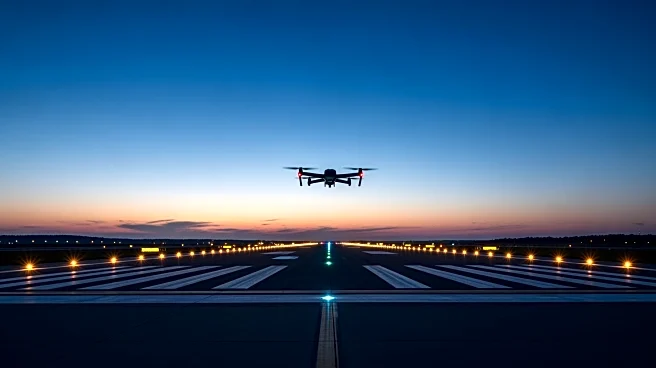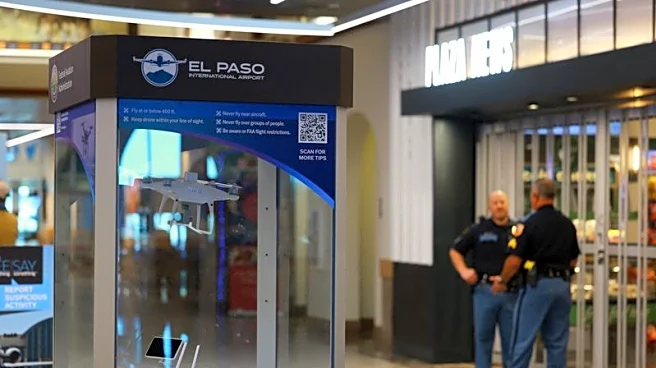What's Happening?
The World Platinum Investment Council has projected a significant increase in platinum demand due to the growing production of sustainable aviation fuel (SAF). SAF production pathways, including power-to-liquid (PtL) and Fischer Tropsch (FT) processes,
require platinum, particularly in cobalt catalysts used in PtL FT synthesis. The council anticipates SAF capacity to expand from two million tonnes in 2024 to 16 million tonnes by 2050, with platinum demand rising to approximately 260,000 ounces annually by 2050. SAF, produced from non-petroleum feedstocks like waste oils and agricultural residues, is expected to contribute 65% of the aviation industry's emissions reduction needed to achieve net-zero emissions by 2050.
Why It's Important?
The anticipated increase in platinum demand for SAF production highlights the metal's critical role in the transition to sustainable energy sources. As the aviation industry seeks to reduce its carbon footprint, SAF offers a viable alternative to traditional petroleum-based fuels. The growth in SAF production could mitigate the decline in petroleum platinum demand, supporting the platinum market amidst global energy transitions. This shift underscores the importance of developing supportive policies and regulatory frameworks to accelerate SAF deployment and ensure the aviation industry's sustainable future.
Beyond the Headlines
Platinum's role in SAF production extends beyond its use in catalysts. It is essential in isomerisation processes, which improve fuel properties for safe, high-altitude flight. The scalability of FT processes using diverse feedstocks, including waste materials, positions SAF as a strong candidate for commercial-scale production. This development could drive innovation in renewable energy technologies and influence global energy policies, promoting a broader adoption of sustainable practices across industries.

















